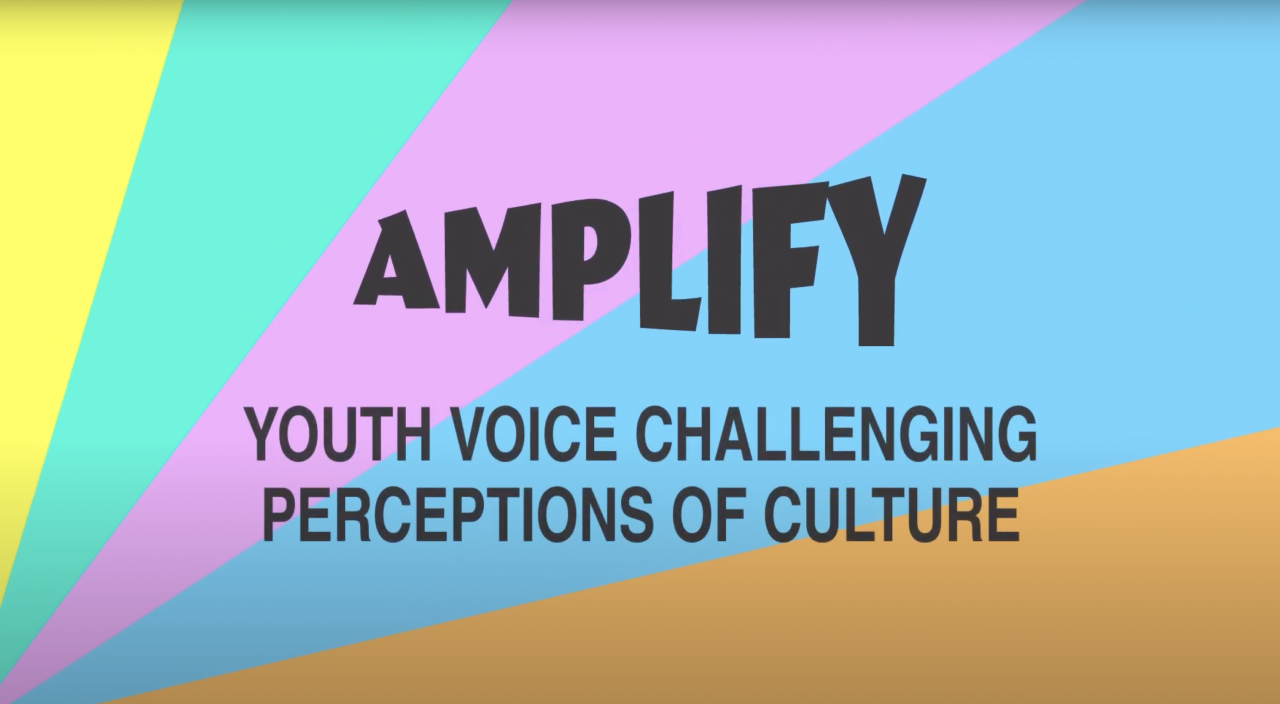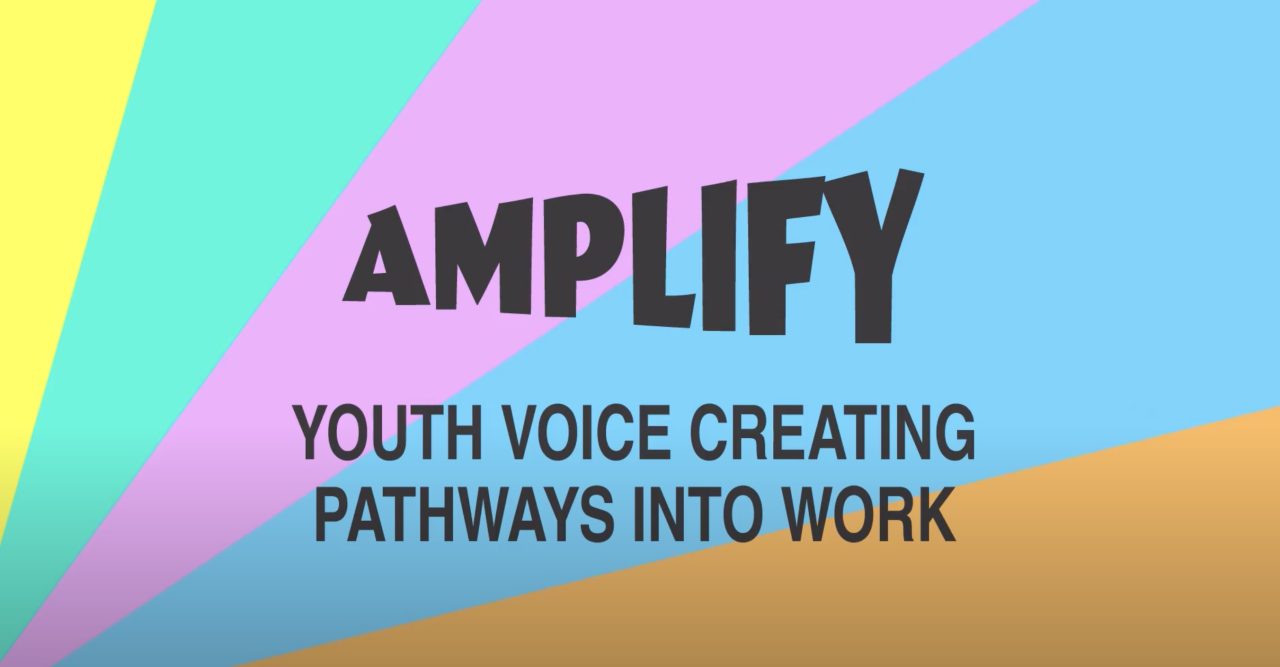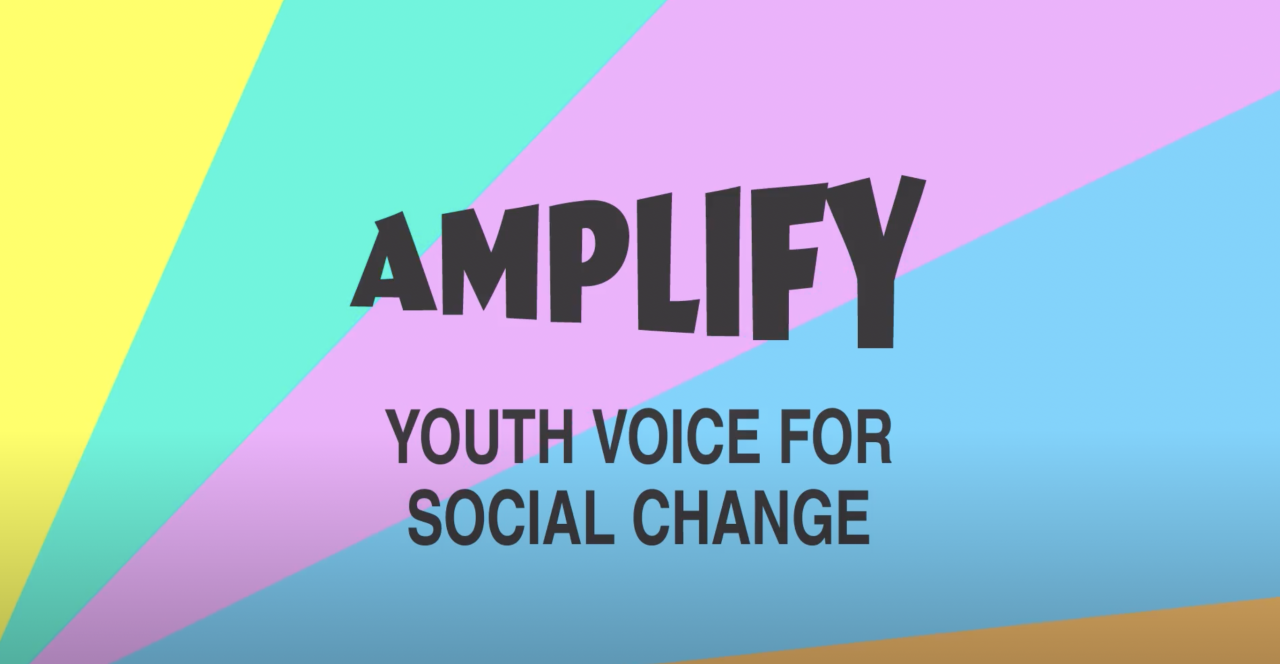Youth Voice and Place
Exploring cultural access in areas less traditionally represented by the cultural sector
- Culture & Heritage
- Place
In this episode, we explore youth voice and place by stopping off at some rural and coastal communities that are connecting young people to their local arts and cultural sectors. We visit North Yorkshire first to meet with Sally from Ignite Yorkshire’s Bright Sparks youth group, where she shares with us the importance of young people contributing to the permanence of a space, like the construction of a Bodger’s lodge at the Carlton Lodge Activity Centre in Thirsk. Sally also shares her experience of working in a large rural area, and the importance of making youth projects and travel to these places accessible for young people.
In Hull, we hear from Generation Hull, the Local Cultural Education Partnership, and its youth steering group representatives, Elise and Sophie. They share what it’s like to participate on the partnership’s board and how it’s offered them an opportunity to learn new skills and to have a space to vocalise their opinions. They also explain the importance for other young people to learn about employment opportunities in the arts and culture sector. Lisa tells us about Generation Hull’s plans to continue to support access to great cultural opportunities for young people and their ambitious plans to have 25% of their steering group be made up of young people.
Finally, we visit Stratford-upon-Avon, where we speak with Saanvi, a young board member who joined Warwickshire CEP (WCEP) at the age of 10. She tells us about what it’s like to be on the WCEP board and how it's helped her connect with other young people. She also shares the importance of including children’s insights, not just older youth, when seeking feedback from young people. Clare from WCEP speaks to us about the uniqueness of having young people on their board and their passion to help all children and young people in Warwickshire access arts and culture. She explores the challenges the cultural sector sometimes faces when it covers such a large, rural area and the exciting goal the youth-led board has to ensure all young people in the county have the same access to cultural opportunities.
- Kayla Herbert, IVE
Bright Sparks
Sally Clifford: So the idea of permanence is never really one that you find in youth work, and it's quite a lovely thing. And finding the heritage on a site together, not knowing the heritage of this site because we're an outdoor activity centre, we're not a museum.
We found out that we're in a Victorian brickworks, and because of that, everything we've done here has a legitimate history on the site.
We wouldn't have a lake if it wasn't for the brickworks. We couldn't build a wall if it hadn't been for the site. So the fact that the bodgers lodge here permanently – in 20 years time, the Bright Sparks can come back and point at something and go 'I made that, that's mine'. And that's amazing.
And that's something that very few youth projects can say they can do.
I'm so proud. I can't tell you how proud I am that we've got stuff that isn't going anywhere. And that's just amazing.
I think from the outset the Ignite Yorkshire project has been about connecting. The whole concept of an industrial revolution for the 21st century would suggest that they want hands on heritage, and that's what we're all about here and that's what we've been about from day one.
We've built the bodgers lodge literally from the ground up. Every morsel of it has been made by young people and it's theirs. It's their history, they get that. They know how stuff works now and they can take new skills and experience into their future lives with whatever they're going to do with it.
Rurality is a massive issue for a lot of young people, especially in North Yorkshire, but all over the country.
It's amazing how many projects focus in a very small and uniquely small area when in fact our Bright Sparks came literally from the top of the county to the bottom of the county and outskirts and came from Hull and came from over near Bradford way.
Accessibility for young people is massive and you've just got to do everything you can to accommodate. You've got to be flexible, you've got to do your best for the young people to get whatever they can out of a project.
You've got to ask them. If you don't ask them what they want to do.
You can come up with the best projects in the world on paper and if they're not interested,they won't come. So it doesn't matter.
They've all gone on to do amazing things. They've all got their own stories to tell. So there's at least 24, if not more young people over a three year period who have really come together, they've created their own community, they have created their own people.
They are a bright spark, and will continue to be a bright spark. You know, it's not something that they've left.
Generation Hull
Elise: In terms of personal development, we have only had a handful of meetings. However, Generation Hull has given me the opportunity to vocalise my opinion to those with the power to make decisions, nurturing characteristics such as critical thinking, debating and compromise for all involved.
Sophie: I think youth representation is important to the steering group because it's important to sort of change the way people talk and feel about the arts rather than it just being a hobby.
I think it's important for it to just be something you can actually make your life about and dedicate your career to and to sort of leave the idea of, ‘Oh, well, if I can't make it as an actor or an artist, then I can go into law or medicine,’ and for it to actually be a proper career people take seriously.
And to increase accessibility, to sort of lower the rates because certain families might come from backgrounds that can't afford the tuition for these sort things. And to get schools to provide for the arts. Because the more people who provide for the arts, the more ways young people can get involved in them. And then it would lead to more people being interested and wanting to make something out of it.
Elise: Although Hull being city of culture in 2017 definitely put Hull on the map – increasing tourism and income – the impacts of these were unfortunately short lived, with Hull still being behind neighbouring cities such as York and Leeds in terms of development.
There's definitely been an increase in creative opportunities such as the Freedom Festival Development, and the Awakening event, which is happening this month.
However, opportunities are often passively engaging, when what we really need projects in which Hull's young people can be a part of within the development and performance process to give them purpose and drive for their study of the arts, so we can break this pre-existing belief that the arts are a luxury for those with higher incomes to pursue, resulting in such little uptake with a predominantly working class city like Hull.
Sophie: The advice I would give for organisations that want to get young people more involved in the decision-making process is to create things like art councils and programs where young people can actually physically go themselves and say, 'this is what I want to happen.'
In creating an arts council, it works on team building skills like compromise, learning how to pretty much know how – ‘well I want this idea and another person might want to…’ And you can work together to figure out how to make something that would both work for you.
And in arts becoming a growing sort of civilization in society, it's important for young people to be involved and to say, ‘well, 'this is what I want and this is how I want to do it.'
Elise: With Generation Hull, we've had a few meetings and it's just so many like minded people and also people who don't necessarily consider the arts, or have considered the arts before, having that diversity of opinion come in.
And we sit in these meetings, and it's just such a creative process because we get to just talk and share ideas and then it creates collaboration.
Lisa: I've been working with both Elise and Sophie and other young people within the steering group, well, I think I've been working over the past six months, but they've come together in the past five weeks specifically to look at how they can develop a steering group that can support young people to work out what it is that they want to do and how they want to influence those people that sit on the compact.
I've got a real passion to work with lots of different people across the city, and that'll be all arts organisations and all schools and young people.
You know, we can really explore what those opportunities are, and make and develop better ones, or continue to develop ones are working really well so that the impact for young people
continues past these two years, But, you know, Generation Hull can continue for the next five, six years, supporting young people to have great access to great opportunities.
Warwickshire CEP
Saanvi: I've always been passionate about the arts and I wanted to connect with more arts activities and events.So when I was invited to join the WCEP board, I was so excited and I grabbed that opportunity to continue promoting arts among young people.
Being a part of WCEP meant connecting with other young people and sharing and exchanging ideas and knowledge, which was my motivation for joining the board.
I love discussing and brainstorming for projects undertaken by the WCEP. I also enjoy co-chairing meetings and attending workshops with other arts groups.
My favourite moment was designing the logo for Shout Out for the Arts, and I was so delighted to know that my design was selected and referred to for the final logo.
Shout Out for the Arts is the first youth-led CEP board in the country. We are proud to represent the youth in Warwickshire. We are working towards improving and promoting arts opportunities and education for young people.
I got introduced to the CEP board initially because I was a Shakespeare ambassador.
Conducting the workshops with different groups in Warwickshire, like the Arts Insight Group or schools in Stratford, enabled to attract many young people and infuse an interest among them to join the board.
There was, of course, the Covid interruption, which was a huge challenge which caused a disruption in regular meetings. Later on, even though the meetings were held online, they were less effective compared to in-person meetings because many times the ideas might not be properly communicated. Another challenge was recruiting and retaining young people for the board.
And advice to the other young people is to be confident.
Don't be afraid to voice your opinions because your voice matters. It's a great opportunity to network with other young people for the arts.
I think the fact that some adults think that only older children are interested in getting involved with the arts is just an assumption caused by the lack of knowledge and communication between adults and children.
Even younger children are passionate and interested about getting involved in the arts and culture activities. I joined the board at the age of ten, and I thoroughly enjoyed working with the WCEP, and it's good to see that more and more younger children are joining the board now.
Clare: The support in Warwickshire LCEP is different, not only because there are young people on the boards within the Warwickshire LCEP, but of course it's a rural area. It's a large geographical part of the country and is mainly made up of farmland and rural communities – with some small towns
A key passion of the Warwickshire Youth Board is that they are really keen that all the children and young people in Warwickshire have the opportunity to access culture. So they've started to develop a campaign to talk to young people across the whole county about what cultural opportunities they can access, what things they would like to see happening, and what they think could be done about that.
It's their intention that all that information then will be fed back to the local councils and district and borough leads, and that they will hopefully take some action to make sure that every child and young person within Warwickshire has the same opportunity to access the cultural activities, whether they live in the south or the north of their local authority.
Bright Sparks
Bright Sparks is an Ignite Yorkshire youth group run by North Yorkshire Youth. They blend traditional heritage crafts with outdoor adventure activities to create a space for young people to socialise and learn new skills.
You can watch what they have to say from 00:05 in the video.
Generation Hull
Generation Hull is the LCEP in Hull. Its ambition is that young people will make up 25% of its steering group within the next 12 months.
You can watch what they have to say from 03:07 in the video.
Warwickshire CEP
Warwickshire CEP is the LCEP in Warwickshire. It is the first youth-led local cultural education partnership in the country.
You can watch what they have to say from 07:16 in the video.
Wakefield's LCEP (Spark) case study on co-produced literature festival
Kirklee's LCEP (Evoke) case study on young producers programme
Exploring the Future of Lincoln
This blog by Zest Theatre outlines their new research project that talks to over 1000 young people across Lincoln
A report written by Lucy James that explores how LCEPs have been embedding youth voice work into their arts and culture provisions
This report was written to accompany this video
Recovery Curriculum Lever 5 – Space
These resources were created by A New Direction in response to the pandemic. This activity encourages pupils to explore the spaces that are important to them, how they make them feel and how they can adapt their environment to boost their emotional well-being.
Dreamachine Global Citizenship
Dreamachine Schools is a major UK wide programme, developed by A New Direction in partnership with the British Science Association, UNICEF UK and We The Curious. Over Spring/Summer 2022 they will be providing 30 free lesson plans covering Global Citizenship, The World Around Us, Health and Wellbeing, Personal Development, The Power of the Brain, and Perception and Illusion.


